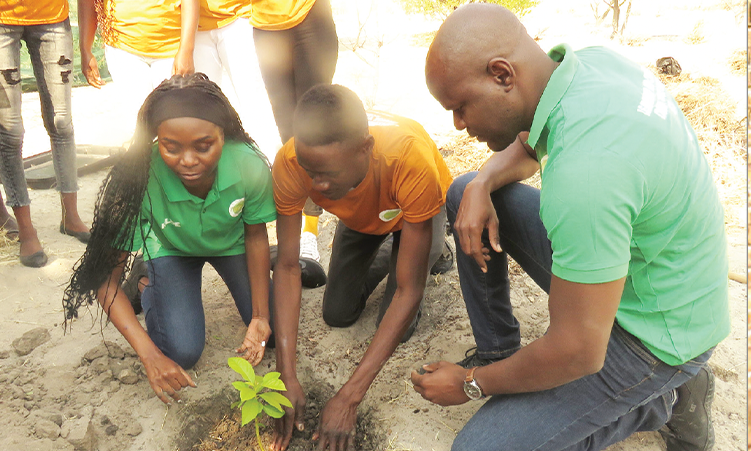An environmental education officer at Eenhana Youth Multipurpose Youth Centre in the Ohangwena region has called on young people in the Oshana, Ohangwena and Oshikoto regions to get involved in organic food production.
Ester Hango says the method of organic or conservation agriculture is safe and contributes to the fight against climate change.
She says Namibia is currently suffering from declining rainfall.
“In the past food was enough, but now we are suffering from hunger due to food insecurity,” Hango says.
She says producing enough food is important for any nation.
“Now, we are not producing food, because mahangu fields are not being cultivated any more. We need to go back to our traditional ways of producing food,” she says.
Hango said this at a two-day leadership and climate change youth camp at the Okatyali Biodiversity Campsite and Multi-purpose Centre at Okatyali in the Oshana region.
She says agriculture is not a road without hurdles. Whether planting trees or crops, climate change and crop diseases are challenges, she said.
“You need to be able to rearrange the way you manage your garden, including crop rotation as well as to understand the types of soil that fits your plants, your crops or vegetables,” she said.
Hango demonstrated to participants how to plant a tree, different soil types, and how to provide a tree with nutrients.
This also involved planting an avocado tree at the site, which Hango nicknamed ‘The Mandela Tree’.
She has founded a community garden at Okatyali, where she and her two colleagues want to set up an ecotourism camp.
The camp was held under the theme ‘Exploring Leadership Opportunities and Leveraging Digital Skills Enhance Business Growth in Climate Crisis’.
The gathering, which brought together about 40 young people from three regions, was initiated by Hango, Hilde Amushembe and Sebulon David, who were awarded Mandela Washington Fellowships (MWF) and have been working to promote the interests of young people and women in their communities with the focus on climate change, renewable energy and access to digital information in Namibia.
As alumni of the MWF, the three recently had an opportunity to present their work and were awarded a small grant of US$3 000 to work in partnership with each other and to host an event in their community of interest.
They proposed to host the youth camp, targeting young people in business and unemployed young people aspiring to start small businesses.
Amushembe made a presentation on how the youth can find opportunities in renewable energy.
David gave a presentation on how the youth can explore business growth digital skills.
He said young people must have smartphones.
“All information today goes through smartphones. This is where you get your customers and your marketing,” he said.
“Donations do not come any more. We are on our own. We need to work together, people only help those who are making an effort to help themselves,’’ he said.



Leave a Reply